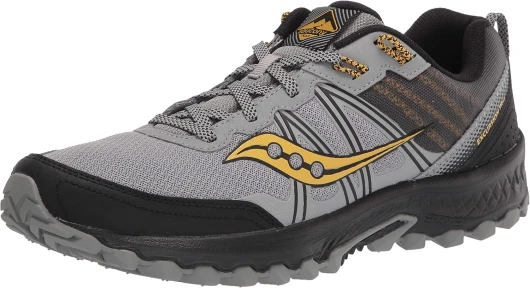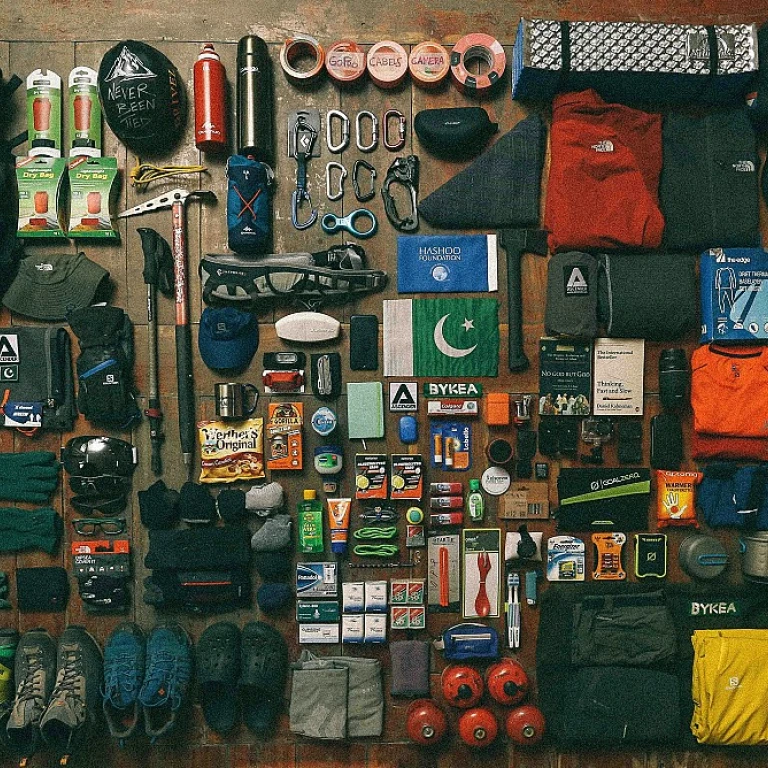Understanding the Terrain: Why Denver's Trails are Unique
Characteristics of Denver Trails
Denver's hiking trails offer a unique blend of natural beauty and diverse terrains, making them a haven for outdoor enthusiasts. With the majestic Rocky Mountains as a backdrop, these trails often combine various landscapes, from alpine lakes to rugged rocky paths.
- Rugged Terrain: Many trails in this area feature challenging rocky surfaces, requiring careful navigation and proper footwear to ensure safety and comfort.
- Elevation Gains: Trails near Denver commonly present significant elevation changes, offering both moderate and challenging hikes for adventurers of all skill levels.
- Climatic Conditions: The altitude in and around Denver, as well as changing weather patterns, can surprise hikers. Unexpected rain or a sudden chill is not unusual, and it can add an extra layer of challenge to the hikes.
Such conditions make it vital to prepare adequately before embarking on any hike. Understanding the intricacies of Colorado's trails helps choose the best routes and prepare appropriately for the journey. These diverse trails, whether they are a mile loop through a state park or a day trip leading to the breathtaking Bear Peak, promise awe-inspiring vistas and invigorating experiences.
For those new to Colorado hiking, the
Herman Gulch Trail offers a taste of what awaits, with its picturesque lake views and manageable elevation gain. As you plan your adventures near Boulder or the Rocky Mountain National Park, remember that understanding the journey ahead is key to a fulfilling hiking experience.
See offer

The Role of Hiking Boots: Essential Gear for Every Trail
Why Choosing the Right Footwear Makes a Difference
Navigating the diverse topography of Denver terrains requires more than just an enthusiasm for adventure; it calls for the perfect pair of hiking boots. Whether scaling the challenging routes towards Bear Peak or taking a moderate day hike around Lake Isabelle, selecting appropriate footwear can profoundly impact your hiking experience.
When tackling Denver's trails, you have the advantage of being surrounded by the breathtaking Rocky Mountain landscape. But with that, comes a combination of rocky paths, steep elevation gains, and varying lengths from a simple mile hike to more extended adventurous hikes near Pikes Peak. A well-suited pair of boots can offer the stability and support you need.
Experience has shown that boots designed specifically for mountain trails often provide the necessary grip and durability to face the obstacles these hikes present. For both seasoned and novice adventurers, the top hiking boots should maintain comfort and prevent injuries, even on difficult terrains such as those found in Rocky Mountain National Park.
The right hiking boots not only protect your feet while hiking near Colorado’s top state park areas but also contribute to overall safety. Facing a steep 2,000-foot elevation gain without the appropriate foot support can turn a thrilling adventure into a challenging ordeal.
Consider researching further on
exploring Denver’s finest hiking trails to find boots that match the trails' demands. In this guide, you’ll find top picks for some of the most popular trails near Denver, tailored advice to ensure that each step you take is as secure as it is enjoyable. Stay equipped and informed for every mile loop or timed entry into the broad expanse of Colorado’s striking landscapes.
See offer

Choosing the Right Hiking Boots for Denver's Trails
Optimal Footwear for Denver's Varied Terrain
Choosing the right hiking boots for navigating Denver's trails involves more than just style preference. With the diverse landscapes stretching from rocky mountain crags to mellow lakeside trails, understanding the terrain is crucial for your comfort and safety.
In Denver, the elevation gain and varied trail conditions can significantly impact your hiking experience. Here's how to ensure your footwear is up to the task:
- Trail Type: From the moderate loops around Bear Peak to the challenging ascents of Pikes Peak, each trail demands specific footwear capabilities. Boots with robust ankle support are essential for rocky and uneven terrains found throughout Colorado hiking trails.
- Seasonal Considerations: With trails near Denver experiencing diverse weather patterns, it’s wise to select waterproof boots during cooler months or for mountain national park hikes.
- Boot Material: Terrain across parks such as the Rocky Mountain National Park requires durable materials. Full-grain leather offers excellent longevity—ideal for frequent hikes or day-long explorations.
When choosing hiking boots, consider the length of your mile hikes: shorter explorations might be feasible with lighter footwear, while extended mile loop trails need sturdier boots for ensuring both protection and endurance. Trying on boots with the socks you plan to wear during your hike and testing them on inclines can also simulate different trail conditions.
For those seeking more insights into optimal hiking gear, here's a comprehensive guide on selecting the
ultimate backpacking sleeping pad for your adventures. This resource is part of our commitment to ensuring every hike near Denver is both safe and enjoyable.
See offer

Top Hiking Trails Near Denver for Every Skill Level
Exploring a Variety of Trails
Denver boasts an array of hiking trails that cater to every skill level, from beginner to experienced hikers. This diverse selection enhances the city's reputation as a top hiking destination, providing options for all who venture into the great outdoors. Here's a glimpse into some trails near Denver.
Easy and Scenic Trails
For those seeking a leisurely hike with stunning views, the trail to Lake Isabelle in the Indian Peaks Wilderness is a fantastic choice. At just over 2 miles, the trail offers breathtaking views of the lake surrounded by towering peaks. The low elevation gain makes it ideal for beginners or families looking for a peaceful hike that showcases Colorado's natural beauty.
Moderate Challenges with Rewarding Views
Hikes classified as moderate provide a bit more of a workout with varying terrains and elevations. The trailhead at Boulder offers the popular Bear Peak trail, boasting a 4.7-mile loop featuring an elevation gain of 2,700 feet. The panoramic views from the summit make the challenge worthwhile, offering a stunning perspective of the surrounding areas.
For the Experienced and Adventurous
If you're ready to tackle something challenging, the demanding routes like those in Rocky Mountain National Park or the trek up Pikes Peak will test your endurance. These trails offer longer distances and greater elevation gains, such as the 13-mile hike with a significant 4,300 feet of elevation gain to the summit of Pikes Peak. Such hikes require a full-day commitment and preparation for sudden weather changes and the magnificent but rugged terrain.
Family-Friendly and Convenient Options
If time is limited or you're introducing younger hikers to nature, many state parks near Denver offer short, easy hikes with convenient access. Options like the 3-mile stroll through Chatfield State Park provide a serene escape without the commitment of a full-day endeavor, ensuring everyone in the group has an enjoyable experience.
Every trail near Denver offers a unique exploration opportunity of Colorado's breathtaking landscapes. Whether you're seeking the thrill of reaching a mountain peak or simply enjoying a quiet walk near a gentle lake, there's always a perfect trail waiting. Remember to equip yourself with the right hiking boots for optimal comfort and safety, and review guidelines regarding timed entry in more popular areas to make the most of your hiking adventure.
See offer

Common Challenges Faced by Hikers and How to Overcome Them
Overcoming Common Challenges on Denver's Trails
Exploring the captivating trails near Denver provides a range of experiences, from moderate strolls through state parks to the more challenging hikes up Bear Peak or Pikes Peak. However, outdoor enthusiasts need to be prepared to tackle the hurdles that come with hiking in this unique terrain.
- Altitude Adjustments: Many of Denver's top trails pose the challenge of significant elevation gain. The higher you go, the thinner the air becomes, leading to potential altitude sickness. Planning shorter hikes initially to acclimate yourself is essential. Pay close attention to your body, and if symptoms like dizziness or nausea occur, it's wise to descend immediately.
- Navigating Diverse Terrain: The hiking trails in this area can vary from rocky mountain paths to softer forest grounds. Wearing the right pair of hiking boots with adequate grip is vital to ensure safety on these variable terrains. Opting for footwear designed to handle the Colorado hiking environment can prevent slips and provide necessary support.
- Weather Changes: Unpredictable weather in the mountains near Denver can be tricky. A clear day on a trailhead can turn cloudy and rainy over a few miles. It's advisable to check the weather forecast before heading out and carry additional lightweight gear, like a waterproof jacket, to handle sudden changes.
- Trail Crowding: Popular trails near peak times, like the mile loop around Lake Isabelle or sections of the Rocky Mountain National Park, can get crowded. To enjoy a more tranquil hiking experience, embark on trails early in the morning or during weekdays when possible.
- Wildlife Encounters: While on the trails, you'll be amidst Colorado's rich wildlife, which means encountering animals is possible. Maintain a safe distance, stick to marked trails, and store any food securely to avoid attracting bears or other wildlife.
The key to enjoying Denver's trails while minimizing issues is preparation and awareness. Keep these tips in mind to make your hiking adventures not just safe but also memorable and fulfilling.
Maintenance Tips for Hiking Boots: Ensuring Longevity and Performance
Keep Your Boots in Prime Condition
Maintaining your hiking boots is crucial to ensure they're ready for every challenge the trails near Denver may throw at you. Not only do these boots endure diverse terrains, like the rocky paths of Rocky Mountain National Park and the ascent to Bear Peak, but they can also encounter wet conditions at places like Lake Isabelle. Here's how you can keep them in top condition:
- Cleaning: After each hike, remove dirt and debris from your boots. Use a soft brush to remove mud and a damp cloth to wipe away surface grime. This straightforward step can extend the life of your boots significantly.
- Drying: Never dry your boots by a direct heat source, like a campfire or a space heater. Instead, let them air dry in a well-ventilated area. Consider stuffing them with newspaper to absorb moisture faster, especially after a challenging mile loop or a hike near lake trails.
- Conditioning: Leather boots require regular conditioning to prevent cracking and maintain their flexibility. Use a specialist leather conditioner every few hikes or after a particularly demanding trail.
- Sole Inspection: Regularly inspect the soles for wear and tear. Trails with significant elevation gain, such as the hike up Pikes Peak, can be tough on soles. Re-sole your boots as needed to ensure optimal grip.
- Waterproofing: Reapply a waterproof treatment periodically, especially after you've been on wet trails near a lake or in the snow of mountain national parks. This ensures your boots remain water-resistant.
- Storing: Store your boots in a cool, dry place, avoiding cramped spaces where they could lose their shape. Proper storage can preserve their fit, which is crucial for comfort during long hikes or in challenging Colorado hiking conditions.
Remember, investing time in the upkeep of your hiking boots not only secures their longevity but also enhances your hiking experience on the various trails near Denver. Whether you're tackling a moderate day hike or a more challenging peak, well-maintained boots offer support, comfort, and protection every step of the way.







